
Most Read

WhatsApp Free Heineken Beer: A Father’s Day Scam

How to Tell if Nikes Are Fakes: From Tags to the Stitching
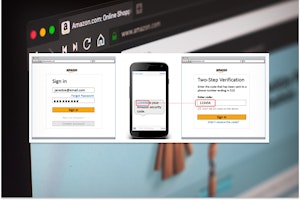
Received an Amazon OTP Text? It Could Be a Scam
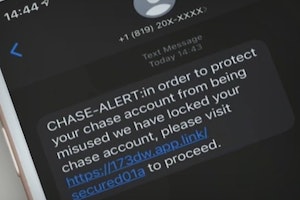
Real Chase Fraud Text Alert or Scam Message?

How to Spot Fake Air Force 1s: 7 Signs of a Fake
Whatsapp In Depth
WhatsApp is a popular text and voice messaging app that uses your phone’s cell or WiFi connection. Launched in 2009, WhatsApp now boasts approximately 2 billion monthly active users. Users can place international and domestic calls and send documents, photos, and videos without fees or subscriptions. Unfortunately, its growth and popularity have resulted in various WhatsApp scams perpetrated by thieves after your money and information.
In 2014, Facebook acquired WhatsApp for $19 billion. Since users can log onto WhatsApp on almost any device, it has continued to enjoy global appeal, bringing with it some dangers.
Types of WhatsApp Scams
As one of the world’s leading mobile messaging services, WhatsApp has unfortunately attracted scammers looking to make some quick cash off unsuspecting users. These are the most common WhatsApp scams:
- Code hacking
- Friend or family emergency
- Hoax messages
- Delivery scams
- Misinformation campaigns
- Voice mail scams
- Links to fake websites and chats
- Vouchers
- WhatsApp Gold
WhatsApp Fake Contests
One of the latest scams to hit WhatsApp offers a chance to win a case of Heineken beer.
Code Hacking
In this scam, you’ll receive a text on your cell phone as well as a message on WhatsApp that appears to be from a friend in your contact list. The friend asks you to share the code you received via text. Once you share the code, the “friend”—who’s actually a scammer—will hack your WhatsApp account and leave you unable to log in.
Friend or Family Emergency
A scammer impersonating one of your WhatsApp friends will contact you with an urgent request for money, possibly due to an emergency. Since you believe you’re communicating with someone you know, you may fall for the scam and send the money, which lands in the hands of an opportunistic scammer.
Hoax Messages
You receive a message from a user stating that WhatsApp will start charging users a fee to continue using the service, such as $10 a year. The message will warn that you’ll need to forward this message to other users if you want to avoid paying for the service. The scam message might include a link to a customer portal where you’ll be asked to enter your bank or credit card information. (Note that WhatsApp is a free app that has no plans to charge its users.)
Delivery Scams
Scammers posing as online delivery companies send a message on WhatsApp claiming that a package needs to be delivered to the user’s address. If you click on the link in the message, you’ll be taken to a website that asks for a small payment in exchange for the release of the package. Entering your financial information puts you at risk of losing the required payment and exposes you to identity fraud.
Misinformation Campaigns
Scammers purchase lists of phone numbers to target sending false news and information involving political elections and the pandemic. If you receive a WhatsApp message containing this kind of information, the message might instruct you to forward it to other users.
Voicemail Scams
You receive an email stating that you have a voice message on WhatsApp. Since WhatsApp voice messages are delivered through the app itself, this is also a scam. The email instructs you to click on a button to listen to the message. If you click on the button, you’ll be led to a fake website that will install malware on your device.
Links to Fake Websites and Chats
You’ll receive a link from someone you don’t know inviting you to chat. The link may lead to a legitimate-looking website, such as Facebook, but is actually an impostor website designed to take your personal information. The link may also lead to a fake WhatsApp messenger app that could install harmful malware on your device.
Vouchers
In this scam, you may receive a message with a link claiming that you have won a voucher or gift card from a retailer. Clicking on the link and entering your information could expose you to identity and financial theft. A scammer could also install cookies on your device that track your browsing activity.
WhatsApp Gold
Scammers send out emails to users touting an upgraded version of the app known as WhatsApp Gold. After explaining the host of enhanced features, the message invites users to sign up via the link provided. The link, however, leads to a fake website that may install malware on your device.
How to Beat WhatsApp Scams
WhatsApp can be a convenient way to exchange messages and enjoy international calls, as long as you keep specific safety tips in mind. To beat WhatsApp scams, make sure to follow these tips:
- Reach out to friends outside the WhatsApp app if you receive any strange messages or requests for money to confirm they indeed sent the message.
- Do not respond to texts that ask you to send a verification code.
- Set up two-factor authentication on your app to make it more difficult for scammers to break into your account.
- Add a PIN to your account to protect your messages from others.
- Ask friends to answer questions only they would know the answers to if you believe a scammer might have gained access to their account.
- Do not share sensitive information on WhatsApp, including your bank account details or social media account information and passwords.
- Don’t open links or messages from senders you don’t recognize.
- Do not respond to messages that try to create a sense of urgency.
- Look out for red flags such as grammar and spelling errors and odd phrasing.
Protection Against WhatsApp Scams
If you fall victim to any WhatsApp scams, here’s what you need to do next.
Report WhatsApp Scams
You can report scams directly to WhatsApp. When you report a user, WhatsApp will receive the most recent messages sent by that user. If you believe a friend’s account has been hacked, make sure to state that clearly when you send the report.
Contact page: https://www.whatsapp.com/contact/?subject=messenger
It's important to verify links and contact details to beat imposters.
Contact Your Financial Institution
If you sent money to a scammer, contact your financial institution, credit card company, or third-party payment service immediately. Although they may not be able to reverse the transfer, they may investigate the fraud claim on your behalf.
Increase Your WhatsApp Security
As the victim of a WhatsApp scam, take steps to secure your account. You can enable two-step verification, which means you’ll have the option to enter your email address. Then WhatsApp will email you a reset link if you forget your PIN.
Another way to protect your account is to restrict access to your profile photo to your contact only. To do this, tap Settings > Account > Privacy > Profile photo and select “My Contacts.”
Run an Antivirus Software Scan
If you clicked on any suspicious links, install or run antivirus software to get rid of any malware that may have been installed on your device.
Recover Your Account If It’s Been Stolen
If you believe someone else has gained access to your account, sign in to the app using your phone number. You’ll be asked to enter a six-digit code sent to your phone. Once you enter that code, the person using your account should automatically be logged out. You might also be asked to enter a two-step verification code.
Report Scams to the Authorities
You can report Whatsapp scams to the authorities, including the Federal Trade Commission (FTC), the FBI, and your local authorities.
Scams Impacting Whatsapp

WhatsApp Free Heineken Beer: A Father’s Day Scam
New WhatsApp scams are making the rounds in the lead-up to Father’s Day 2022—here’s what you need to know.
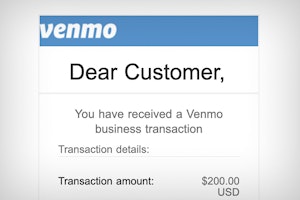
Selling on Facebook Marketplace? Beware of Fake Venmo Emails
Scammers are sending fake Venmo emails to Facebook Marketplace sellers in an attempt to steal login information and money.
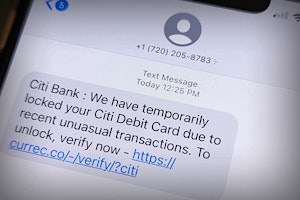
Citibank Text Message Scam: Locked Debit Card Alert Is Fake
If you've received a locked debit card text message from Citibank, it's likely a scam. Don't click on the link and delete the text message.

Real Chase Fraud Text Alert or Scam Message?
If you receive a text message from Chase Bank, don't click on any links or call the phone number listed—it could be a scam designed to steal your information and money.
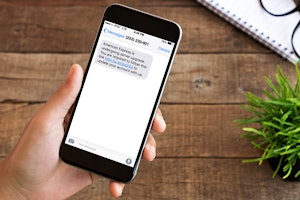
Amex Fraud Text Alert Scams: Spotting a Fraud
If you receive a text message from American Express, don't click on any links or call the phone number listed—it could be a scam designed to steal your information and money.

Fake Verizon Text Messages: How to Avoid a Scam
Verizon may send you text messages from time to time with account updates or data usage alerts, but beware—most of these aren't really from Verizon but scammers.

Get an Unexpected Delivery Alert? It May be a UPS Text Scam
Scammers are using SMS messages to send fake alerts to customers regarding a package delivery. Here's what to know about this scam.
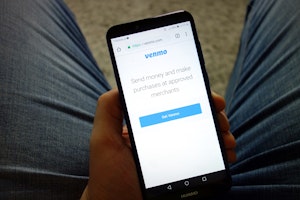
Venmo Text Scam: Don't Fall For These Fake Messages
If you received a text from Venmo with a link to verify a payment or deposit, or are asked to complete a survey in exchange for money, it may be a scam.

Truist Text Alert: How to Identify a Real Text from a Scam
You may think that that Truist have sent you a text alert about your account. Here's how to check if it is actually a scam.

Wait! That Walmart Giveaway Text May be a Scam!
Fake texts are being sent to consumers claiming a hefty sum is waiting for them on a Walmart gift card, but falling for this scam puts you at risk of identity theft.
Guides To Protect Against Cell Phones & Internet Scams

How to Get Verified on TikTok
Securing that little blue checkmark can mean brand collabs, sponsorship opportunities, or protecting your unique content from impersonators.

How to Tell if Nikes Are Fakes: From Tags to the Stitching
Nike is one of the biggest brands targeted by counterfeiters and scammers - be extra careful with Nike products from non-official retailers as you could end up with a fake

Funeral Homes & Prices - What Are The Costs & Your Rights?
Average prices from funeral homes range between $8k to $14k and consumers are meant to be protected by a 'Funeral Rule' - what are your consumer rights?

How to View Your Amazon Archived Orders & Hide Search History
If you share your account with multiple users, archiving your past orders is a good way to keep others from seeing your orders and ruining a surprise or seeing private orders.

The Dangers of Fake THC Vapes Flooding The Market
If the health dangers surrounding vape cartridges weren't bad enough, fake THC vapes containing harmful contaminants are being sold.
News About Cell Phones & Internet Scams

Urgent CDC Warning: Eye Drops Linked to 3 Deaths, Loss of Vision
The CDC is warning eye drops users of a rare bacterial infection from 2 brands of eye drops. The infection is resistant to antibiotics and has resulted in the loss of vision, loss of eyeballs and the death of 3 patients.

Banks May Refund More Zelle Scam Victims in 2023
Zelle scams have reached a serious volume. New reports suggest that banks are looking at new refund protections for customers in 2023.

Optus Data Breach - One of the Worst Cyberattacks in Australia
Hackers have gained access to 9.8 million customer records from Optus in Australia, exposing personal information such as driver licence, medicare and passport details.

Roe vs. Wade Overturned: Abortion Rights in Your State
Find out what the overturning of Roe vs. Wade means for abortion rights in your state.
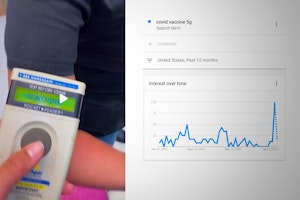
Searches for "COVID Vaccine 5G" Hit All-Time High, But Microchips Definitely Not in Vaccine
The number of people searching for the term "COVID vaccine 5G" on Google has just hit an all-time high, but there's one way to be sure that there are no microchips.